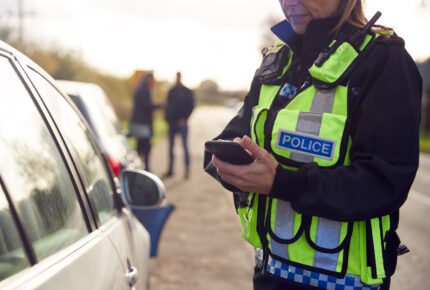

Causing the death of another person through grossly negligent driving is one of the most serious traffic offences in the UK. While accidents do unfortunately happen, some motorists act in ways that show blatant disregard for the safety and lives of other road users. Death by dangerous driving carries severe penalties precisely because of the immense harm it inflicts. This article examines the key aspects of the offence, how cases typically progress, sentencing outcomes, and options for assistance if charged. For first-time offenders with no prior driving convictions, the reality is that a custodial prison sentence is almost guaranteed if convicted of this charge. However, dedicated legal advice can prove invaluable in building a strong defence or mitigating certain circumstances.
What is the offence of death by dangerous driving in the UK?
The offence of death by dangerous driving is a serious criminal charge that involves causing a death while operating a motor vehicle in a dangerous and reckless manner. This offence is primarily governed by the Road Traffic Act 1988, specifically under sections 1 and 2.
To secure a conviction for death by dangerous driving, the prosecution must prove several key elements beyond a reasonable doubt. These elements include:
- Operation of a Motor Vehicle: The prosecution must demonstrate that the accused was operating a motor vehicle at the time of the incident. This includes various types of motor vehicles, such as cars, motorcycles, trucks, and vans.
- Dangerous Driving: The central element of the offence is dangerous driving. The prosecution must establish that the accused’s driving was dangerous, meaning that it fell far below the standard of a competent and careful driver and posed a significant risk to the public. Dangerous driving can encompass a wide range of actions, including but not limited to excessive speeding, reckless overtaking, driving under the influence of alcohol or drugs, and engaging in aggressive or erratic driving behaviour.
- Causation: The prosecution must prove a causal link between the dangerous driving and the death of another person. In other words, it must be established that the dangerous driving directly led to the fatal accident.
- Gross Negligence: In cases where the driving was grossly negligent, the charge may be elevated to causing death by gross negligence, which carries even more severe penalties. Gross negligence implies a higher degree of recklessness or carelessness than standard dangerous driving.
- Knowledge or Awareness: It is not necessary for the accused to have intended to cause harm or death, but they must have been aware of the risk their dangerous driving posed. If the accused was oblivious to the danger they were creating, it may not amount to an offence of death by dangerous driving.
The prosecution typically relies on various forms of evidence to establish these elements, including eyewitness accounts, expert testimony, accident reconstruction, forensic analysis, and any available video or photographic evidence.
If the prosecution successfully proves these elements in court, the accused can be convicted of death by dangerous driving. The penalties for this offence are severe and can include a substantial prison sentence, a mandatory driving ban, and the requirement to pass an extended driving test to regain a driver’s licence.
What are some examples of death by dangerous driving offences in the UK?
Here are some examples of death by dangerous driving offences in the UK:
- Excessive speeding leading to a fatal accident.
- Reckless overtaking resulting in a death.
- Driving under the influence of alcohol or drugs, causing a fatal collision.
- Distracted driving (e.g., using a mobile phone) leading to a deadly accident.
- Aggressive driving behaviours (e.g., road rage) causing a fatal collision.
- Running red lights or disobeying traffic signals, leading to a fatal accident.
- Racing on public roads, resulting in a deadly collision.
- Ignoring stop signs or failing to yield the right of way, causing a fatal crash.
- Engaging in erratic and unpredictable driving behaviour that leads to a fatal incident.
- Driving with significant fatigue or falling asleep at the wheel, resulting in a deadly collision.
- Neglecting to properly maintain a vehicle, which leads to a fatal accident due to mechanical failure.
- Driving while knowingly suffering from a medical condition that impairs one’s ability to drive safely, causing a fatal crash.
- Carrying out dangerous stunts or manoeuvres on public roads that result in a fatality.
- Fleeing from law enforcement and causing a fatal accident during a police pursuit.
- Transporting hazardous materials without following safety regulations, leading to a deadly incident.
- Driving while knowingly impaired due to severe weather conditions (e.g., heavy fog, snow, ice), causing a fatal collision.
What happens if you are suspected of committing death by dangerous driving in the UK?
If you are suspected of committing death by dangerous driving in the UK, several legal procedures and consequences may follow. Here is an overview of what typically happens:
- Arrest and Detention: If the police have reasonable grounds to suspect your involvement in a death by dangerous driving incident, they may arrest you. You will be taken into custody for questioning.
- Investigation: The police will conduct a thorough investigation into the circumstances surrounding the accident. This includes gathering evidence such as witness statements, accident scene analysis, physical evidence (e.g., skid marks, vehicle damage), and any available video or photographic evidence.
- Interview: You will likely be interviewed by the police as part of their investigation. During the interview, you may be asked to provide your account of the events leading up to the accident. It is strongly recommended to consult with a solicitor or legal representative before making any statements to ensure your rights are protected.
- Evidence Gathering: The police and, if necessary, specialised accident investigators will gather evidence to establish the elements of the offence, such as dangerous driving and causation.
- Charging Decision: Based on the evidence collected and legal advice from the Crown Prosecution Service (CPS), the police will decide whether to charge you with death by dangerous driving or any related offences. If charged, you will be informed of the charges against you.
- Court Proceedings: If you are charged, you will be required to appear in court to face the charges. The court proceedings will include bail hearings, case management conferences, and, ultimately, a trial if you plead not guilty.
- Sentencing: If you are convicted of death by dangerous driving, the court will determine your sentence. Sentences can include a significant prison term, a mandatory driving ban, and the requirement to pass an extended driving test to regain a driver’s licence.
If you find yourself facing allegations of death by dangerous driving, seeking legal advice and representation is essential to navigate the legal proceedings effectively and ensure a fair process.
What is the sentence for death by dangerous driving?
In the UK, the sentence for death by dangerous driving is determined based on a complex set of factors and guidelines provided by the Sentencing Council. The maximum is life imprisonment for offences committed after 28 June 2022; otherwise it is 14 years’ custody. Typically, offenders receive at least two years’ custody.
Sentencing guidelines categorise cases into different levels of culpability, ranging from lower to higher levels, with considerations for the harm caused and the presence of aggravating or mitigating factors.
The severity of the sentence depends on the specific circumstances of the case. For instance, cases involving lower culpability and no fatalities may result in community orders or short prison sentences, while those with higher culpability, multiple fatalities, and significant harm may lead to substantial prison terms along with significant driving disqualification periods.
Will I go to prison if it is my first time committing death by dangerous driving?
Yes, it is possible for someone to go to prison if it is their first time committing death by dangerous driving in the UK. The sentencing for death by dangerous driving takes into account various factors, including the severity of the offence, the degree of dangerousness of the driving, and any aggravating or mitigating circumstances.
While it may be a person’s first-time offence, if the dangerous driving resulted in a fatality and is considered to be of a high level of culpability, the court may impose a substantial prison sentence. The aim of such sentences is to reflect the seriousness of the offence and to deter others from engaging in dangerous driving behaviour that can lead to tragic consequences.
Understand that the courts take a dim view of death by dangerous driving due to its potentially devastating impact on individuals and families. The legal system in the UK is designed to hold those responsible for such actions accountable, irrespective of whether it is their first or subsequent offence.
Where to get further help
If you or someone you care about is facing a charge or is already being prosecuted for death by dangerous driving, getting the advice of a qualified and experienced criminal defence solicitor is vital. The team at Stuart Miller Solicitors have decades of experience in this space and have countless successful cases to their name. Get in touch for a free consultation today.
OUR COMMITMENTS TO YOU:
-
Responsive
A legal expert will consult you within 24 hours of making an enquiry.
-
Empathetic
We will always treat you with trust, understanding and respect.
-
Specialised
Your case will be handled by an expert who specialises in your type of offence.
-
Proactive
We will take early action to end proceedings as soon as it is practically and legally possible to do so.
-
Engaged
You will be kept updated on your case at all times. We will provide a named contact available to answer your questions.
-
Caring
We understand this is a difficult and stressful time for you and your family. Our team will support you every step of the way.
-
Tenacious
We will never give up on your case. We fight tirelessly to get you the best possible outcome.

